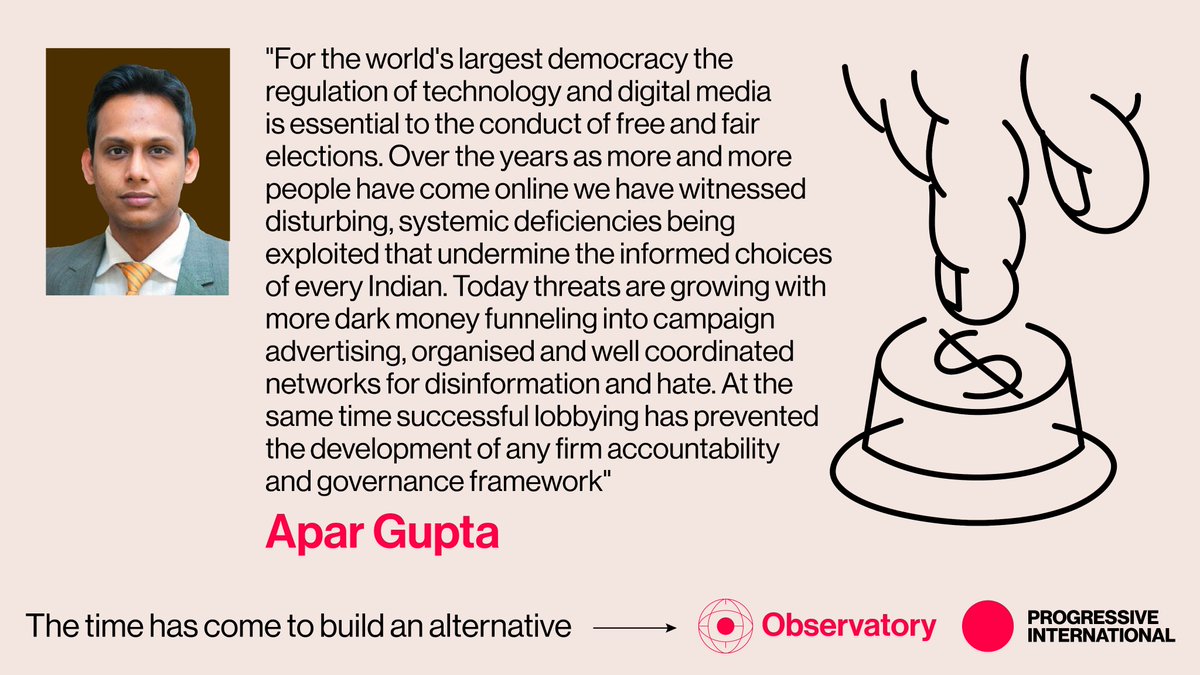
It is likely that the JPC's report on the #PDPB will finally be tabled in the ongoing #WinterSession of India's Parliament❗️
At IFF, we’ve been keeping a watchful eye on #privacy in India. Let's #StartFromScratch: Why do we even need a data law?👇🏽 1/6
internetfreedom.in/startfromscrat…
At IFF, we’ve been keeping a watchful eye on #privacy in India. Let's #StartFromScratch: Why do we even need a data law?👇🏽 1/6
internetfreedom.in/startfromscrat…
What is a:
➡️ Data principal
➡️ Data fiduciary
➡️ Data processor
What is the difference between:
➡️ Personal Data
➡️ Sensitive Personal Data
➡️ Critical Personal Data
What is a 'Data Protection Authority'? What are your rights? #StartFromScratch 2/6
internetfreedom.in/startfromscrat…
➡️ Data principal
➡️ Data fiduciary
➡️ Data processor
What is the difference between:
➡️ Personal Data
➡️ Sensitive Personal Data
➡️ Critical Personal Data
What is a 'Data Protection Authority'? What are your rights? #StartFromScratch 2/6
internetfreedom.in/startfromscrat…
What are the key issues with India's #PersonalDataProtectionBill? Let's #StartFromScratch with a few:
➡️ Users' rights diluted
➡️ Inadequate checks re: surveillance
➡️ Processing data without consent
➡️ Govt. access to non-personal data
...and more! 3/6
internetfreedom.in/why-is-the-dat…
➡️ Users' rights diluted
➡️ Inadequate checks re: surveillance
➡️ Processing data without consent
➡️ Govt. access to non-personal data
...and more! 3/6
internetfreedom.in/why-is-the-dat…
If you're wondering about alternative paradigms of #dataprotection, you're not alone.
Read the 7 fundamental principles of the Indian Privacy Code 2018 & compare two alternative data protection bills that were introduced in India. #StartFromScratch 4/6
internetfreedom.in/constitutional…
Read the 7 fundamental principles of the Indian Privacy Code 2018 & compare two alternative data protection bills that were introduced in India. #StartFromScratch 4/6
internetfreedom.in/constitutional…
For a quick primer on the top 10 issues with the incoming #dataprotection law in India, go through our #DataProtectionTop10!
Will the #PDPBill2019 serve ordinary Indians? Is it consistent with established data protection principles? IFF analyses 👇🏽 5/6
internetfreedom.in/tag/dataprotec…
Will the #PDPBill2019 serve ordinary Indians? Is it consistent with established data protection principles? IFF analyses 👇🏽 5/6
internetfreedom.in/tag/dataprotec…
To dive into the impact of the #PDPBill2019 and know more about how it might affect different sections in society, read our weekly series #PrivacyOfThePeople.
From ASHA workers to people who use dating apps, this incoming bill affects all of us 👇🏽 6/6
internetfreedom.in/tag/privacyoft…
From ASHA workers to people who use dating apps, this incoming bill affects all of us 👇🏽 6/6
internetfreedom.in/tag/privacyoft…
• • •
Missing some Tweet in this thread? You can try to
force a refresh







